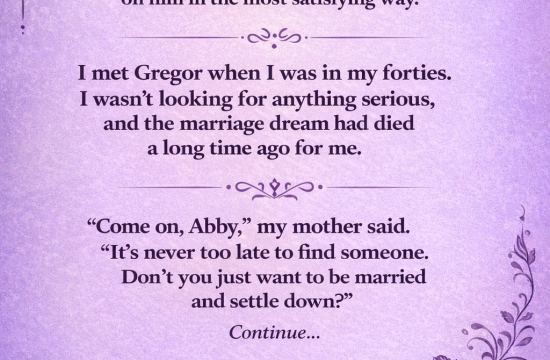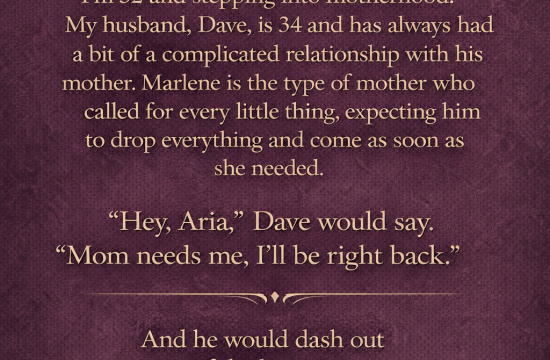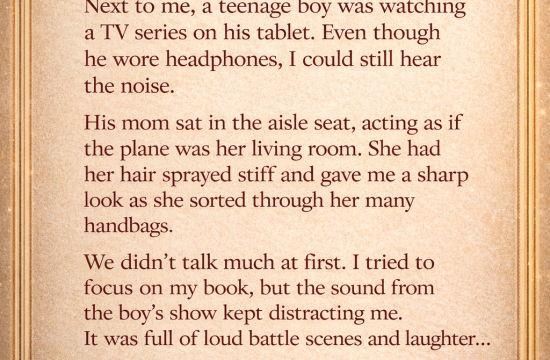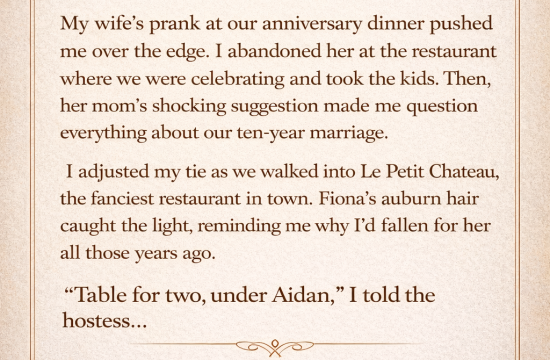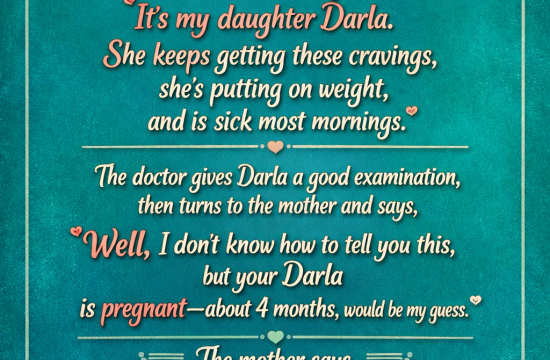I used to think I married the most thoughtful, gentle man I’d ever met.
But I was wrong.
What I actually walked into was a house where “help” meant servitude, “love” meant control, and where a locked door became the line between my sanity and total betrayal.
I met Collins when I was 28. Back then, my life was all stress and spaghetti sauce. I worked night shifts at a cramped Italian restaurant—exhausted, juggling plates, living off caffeine and willpower.
Then he walked in.
Collins wasn’t flashy. No gold watch. No smooth lines. Just a quiet man who sat in the same corner booth every Thursday. He tipped generously—almost suspiciously generously, like he was trying to adopt the whole staff.
One night, as I refilled his iced tea, he asked, “You ever sleep?”
I snorted. “Sleep is a myth. I live on espresso and spite.”
He laughed like it was the funniest thing he’d ever heard.
A few weeks later, he surprised me: “How’s Pickles doing?”
I blinked. “My cat?”
He nodded. “You mentioned she wasn’t eating well.”
It was that small moment—the fact that he remembered—that made me soften. Not because of flowers or grand gestures, but because, for once, someone listened.
Then came the night of the thunderstorm. My shift ended late. My bus was delayed. Rain soaked through my shoes. And an old Toyota rolled up beside me.
Collins.
He lowered the window. “Need a ride?”
I hesitated… then got in.
He didn’t touch me. Didn’t flirt. Just turned on soft rock and said, “Your laugh… it makes my week better.”
It felt safe. Warm. Kind.
Now? I wish I’d seen it for what it was: the first move in something calculated.
Three weeks later, we were dating. Collins lived with his mom, Jenna, but waved it off.
“Just till I pay off debts,” he’d say.
He listened. He cared. Or so it seemed. So when he proposed a year later—simple ring, nervous smile—I said yes.
And that’s when the cracks appeared.
At first it was light pressure. A sigh if I picked up extra shifts. A too-tight hug when I got home late.
“I just miss you,” he’d whisper. But it didn’t feel like love; it felt like ownership.
Soon, “home” became a cage. Nights out with friends became “Why leave me alone?” Text messages became interrogations.
Then we moved in with Jenna “to save money”—and that’s when everything snapped.
Jenna smiled with her lips but not her eyes. The next morning, she handed me a printed list:
“Now that you’re family, we all pitch in! You’ll handle the upstairs, right? And wipe down the bathroom daily?”
It was phrased sweetly, but it wasn’t sweet.
It was servitude.
Suddenly I was the live-in maid. Collins no longer said, “Let’s do the dishes,” but “Think you can handle that, babe?” as if it were my duty.
Work. Chores. Criticism. Silence.
I kept telling myself it would get better.
But then last month, everything changed.
During a busy shift, I slipped carrying four iced teas and a hot plate of eggplant parm. My knee twisted. I went down hard. The pain was sharp, screaming.
At the hospital, the doctor shook his head.
“Torn ligament. No weight on that leg for at least six weeks.”
Six weeks. No work. No income. Barely able to move.
Collins came to get me, voice soft and soothing. “Don’t worry, babe. I’ll take care of you.”
For twenty-four hours, he did.
He carried me upstairs. He tucked me in. Jenna brought water. They acted like the perfect caretakers.
Then they walked out.
I heard a click.
The door locked—from the outside.
“Collins?” I called. “Why’d you lock the door?”
Silence.
I grabbed my crutches and hobbled to the door. My hands shook. The handle didn’t budge.
Panic rose like fire.
I banged on the door. “ARE YOU SERIOUS? OPEN THE DOOR!”
Instead, a sheet of paper slid under the gap.
Interim Home Contribution Agreement
-
Prepare all meals, 3x daily
-
Do laundry for all 3 of us
-
No unnecessary phone use
-
Pay $200/week rent once working again
-
Compliance REQUIRED for continued stay
At the bottom were two signatures:
Collins Thomas
Jenna Thomas
They even left a pen.
Then Jenna’s voice oozed through the door: “Don’t make this harder than it needs to be, honey. We’re just trying to help you… adjust.”
But they didn’t know something important.
Months earlier—after Jenna had “accidentally” locked me in to “teach me patience”—I hid a spare key behind the headboard.
It saved me.
I unlocked the door, hobbled downstairs, and grabbed my phone from the counter.
Jenna gasped like a bad drama villain. “Sweetheart! You shouldn’t be walking!”
Collins stood. “How the hell did you—”
I didn’t answer. I locked myself in the bathroom and called my sister.
“Mia… I need you. Bring James. And police.”
Ten minutes later: sirens.
Collins opened the door with a fake smile. “Officers, is there a prob—”
But I stepped out behind Mia, holding up the paper.
“Yes,” I said. “I was locked in a room against my will.”
The officer’s expression hardened. “Ma’am, do you want to leave?”
“Yes,” I said. “And I’m pressing charges.”
That night, I slept in Mia’s guest room under a soft blanket that didn’t smell like fear.
Two days later, I filed for divorce.
When Mia asked, “What kind of man locks his wife in a room?”
I didn’t hesitate.
“The kind who just lost her.”
And then came the fallout.
Collins tried to fight the divorce. Claimed I “abandoned” him. Claimed “mental distress.” Even said he missed his “domestic support.”
Unfortunately for him, Mia’s husband James is a lawyer—and very, very petty.
He filed a counterclaim with:
-
The “Home Contribution Agreement”
-
Screenshots of Collins’ controlling texts
-
Jenna’s recorded comments
-
ER paperwork
-
Photos of the locked room
The judge didn’t even blink.
Collins lost.
Then came karma’s encore.
HR at his job found out he’d imprisoned his injured wife. They fired him immediately.
Jenna wasn’t on the lease. When Collins fell behind on rent, the landlord posted an eviction notice.
A friend told me they’re living in Jenna’s sister’s basement now.
Last week, I ran into Collins at the pharmacy. He looked exhausted and deflated.
“You ruined my life,” he whispered.
I smiled—calm as sunrise.
“No,” I said. “You just didn’t think I had one without you.”
Then I walked away.
Free.
Strong.
Myself again.




